Viewpoint
Overturning Roe v Wade also puts LGBTQ+ equality at risk
Every person should have the ability to choose when and how they want to start or grow a family, free from legislative interference
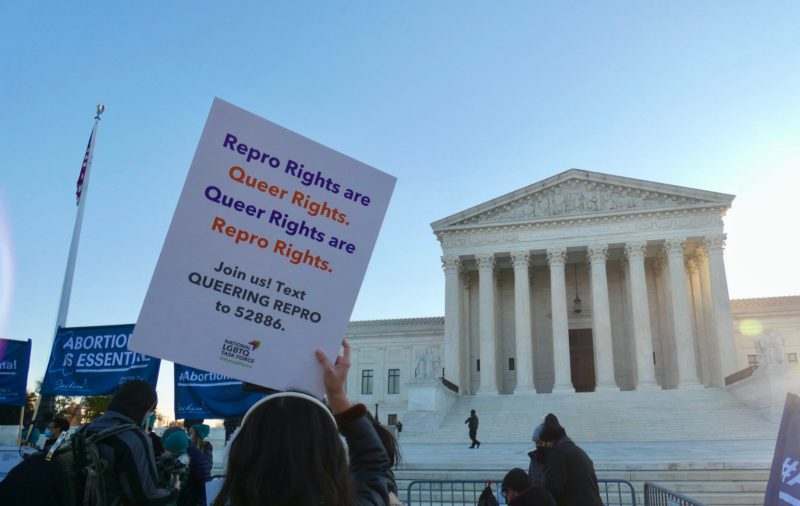
By Lucy Sears | WASHINGTON – The Supreme Court has made a series of dangerous decisions that appear to be aimed at undoing the constitutional right to abortion. If the Court continues in its current direction, Roe v. Wade will be completely undermined – or even explicitly overturned – in the coming months.
For almost 50 years, the Supreme Court’s decision in Roe v. Wade recognized a person’s fundamental right to abortion. However, legal efforts to undermine abortion access for those who need it has effectively put millions of peoples’ rights, autonomy, health, and lives at risk. The Court’s recent refusal to enjoin Texas’s infamous abortion restriction law (SB 8) has given the green light to other states seeking to enact similar restrictions. And if the Supreme Court accepts Mississippi’s argument that it should overturn Roe v. Wade, Americans everywhere will be in grave danger.
Today, and every day, we support every person’s freedom and ability to determine if and when to have children. That’s why Public Justice supports the Women’s Health Protection Act (S.1975), which would protect access to abortion against state-level bans, as well as protecting patients from medically unnecessary restrictions and limitations that seek to prevent a person from choosing to have an abortion.
We believe the right to abortion is a fundamental, human right. Every person should have the ability to choose when and how they want to start or grow a family, free from legislative interference. And legal restrictions on abortion disproportionately impact communities of color, LGBTQ communities, people with disabilities, and other individuals who are already faced with systemic barriers and discrimination that have cemented existing inequities in their access to health care.
Since it was first founded, Public Justice has worked to ensure all people have complete autonomy over their bodies.
“Abortion access is integrally connected to Public Justice’s civil rights work,” said Adele Kimmel, Students’ Civil Rights Project Director. “There is a profound connection between our clients’ rights to choose how, when, and with whom to be sexually intimate and their ability to decide how, when, and with whom to have children. Gender violence is a direct threat to the reproductive freedom of survivors, and the ability to access an abortion after a rape can be critical for their physical and mental health, as well as the opportunity to determine the course of their life.”
Roe v. Wade itself was built upon a series of U.S. Supreme Court cases concerning the substantive due process right to privacy, including Griswold v. Connecticut, which recognized the right of married couples to use contraception. These longstanding decisions form the legal foundation of critical constitutional protections against discrimination and gender violence. Roe’s landmark ruling enabled the Supreme Court to advance LGBTQ equality in decisions like Lawrence v. Texas, United States v. Windsor, and Obergefell v. Hodges. Overturning Roe could not only put the earlier cases like Griswold at risk but jeopardize later cases protecting LGBTQ rights as well, Kimmel said.
With abortion access under serious threat, we are proud to join our allies in the fight for reproductive justice, so intrinsically tied to our work in upholding Americans’ fundamental privacy rights and access to justice.
We thank House Representatives for passing WHPA, and we urge the Senate to follow in its footsteps and swiftly pass legislation that will address the current attacks on abortion rights and ensure no one is denied abortion access no matter where they live.
Join us and urge your Senators to pass the Women’s Health Protection Act (WHPA) of 2021 (S.1975) today! Find out who your Senators are here, send a message, or call the Capitol switchboard at (202) 224-3121. You can also send a pre-written or customized message to Senators here.
The Senate is expected to take up the bill soon so please act now!
********************

Lucy Sears is the Interim Communications Director for Public Justice, a national legal advocacy organization pursuing high impact lawsuits.
Lucy previously served as the Communications Coordinator for the National Association of Conservation Districts (NACD), a national nonprofit that represents the nation’s locally-led conservation districts.
A native of Bethesda, Md., Lucy graduated from the University of Wisconsin-Madison in 2018 with Bachelors of Arts in English Literature and Communications.
Viewpoint
Gay acceptance in US takes a dangerous reversal
Last five years should be wake up call for movement
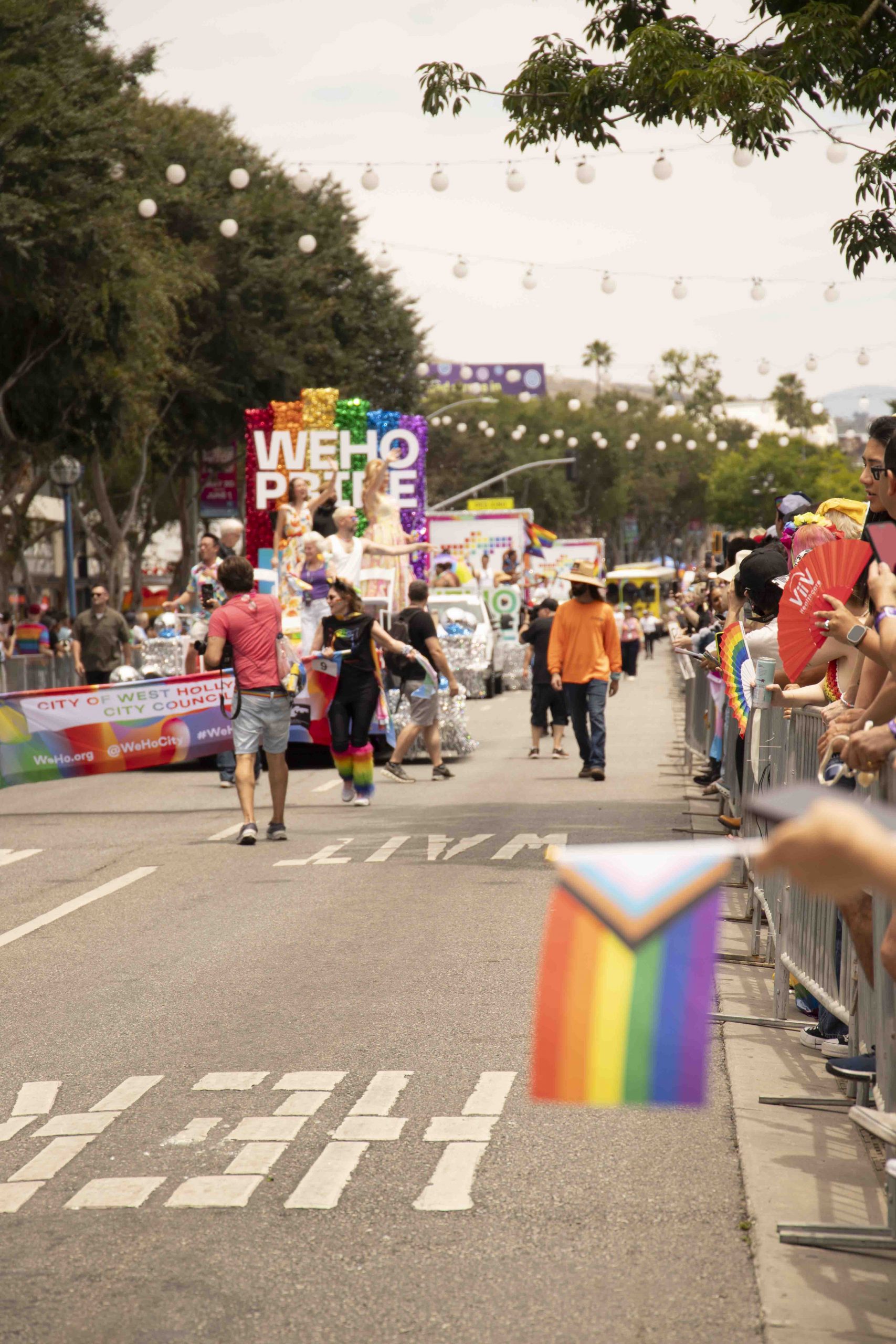
Shocking news has arrived. New social research says it’s true. Gay, lesbian, gender fluid people, and their allies: we have a problem.
New bias attitude research published by respected social scientists Tessa E.S. Charlesworth and Eli J. Finkel of Northwestern University, based on a longitudinal research program, has shown that gay acceptance in the U.S., which reached its peak about 2020, has taken a deep nosedive in the opposite direction during the last five years. The researchers exclaimed, “This reversal stunned us” — as it did me.
What makes this reversal even more remarkable, as the two social scientists explained, “Americans’ bias against gay people declined faster than any other bias ever tracked in social surveys.” It appears that a new cycle of hetero supremacy has arrived. More likely, the hetero supremacists never went away — just stewing revengefully out of sight around the corner with their buddies from white supremacy and male supremacy.
Analysis of 2.5 million American responses from the beginning of 2021 through 2024 revealed that progress had been turned around. In just four years, anti-gay bias had risen by 10 percent. Researchers followed both explicit bias (to what extent do you prefer straight people over gay people?) and implicit bias (more automatic responses inferred by how rapidly people associate words, such as straight with “good” and gay with “bad.”)
Most disturbing of all, these trends were particularly strong among the youngest American demographic, those under 25, a society’s hopes for the future. Also noteworthy was that anti-gay bias has grown faster among conservatives, but it had also risen among liberals.
The researchers admit they have no idea what is causing this dramatic reversal. They suggest two possible hypotheses: (1) anti-trans bias and (2) fear of gays grooming children to become gay, an essential part of hetero supremacists’ baggage of hate for the past 125 years in the West. Children cannot be groomed into being gay but are born that way for an evolutionary reason (more on that subject in a later article.)
Let me add a third hypothesis based on my close, active involvement and observation as a gay community organizer over the past 60 years. A big part of the problem is gay people themselves. If you have followed my many writings over the past 25 years, you have heard this sermon several times before in varying language and contexts.
The Gay Liberation Revolution (1969-c.1985) taught gay and lesbian people that gay peoples’ self-acceptance and united action are more powerful than hetero supremacy. A Gay Liberation tidal wave provided the momentum for a “movement” forward for our people. Now, that tsunami has become a ripple. How did that happen?
1. The absence of a gay political movement. A political movement is “an organized effort to promote or obtain an end.” There are people who I respect who delusionally speak as if a gay movement still existed. A Gay Liberation template does exist for what a gay movement might look like. It must be played forward, however, with the language, reality and tools of today. It begins with the question: How am I and my community oppressed today by hetero supremacy? Action grows out of oppression.
2. The dominant ideology of gay assimilation. As James Baldwin preached, assimilation is always done on the terms of the dominant culture. For gay people, assimilation implies the eradication of hard-fought-for community and identity. Gay and lesbian people, where did you disappear to? Just yesterday, you were here with your fists in the air.
3. Elite capture of the gay community. This capture is characterized by a top-down power structure (elite vertical axis), community members (grassroots horizontal axis) becoming passive spectators, and the primary priorities being wealth, donors, and celebrities, not community well-being. The call for gay power devolved into donate and consume.
4. Community fragmentation by visual media. The dark side of the current new tech visual media avalanche is the fragmentation of a formerly good-enough-united gay community. Visual media has turned community awareness from “we” to “me.” Local news and investigative journalism have disappeared completely from gay news sites that are now “curated.” A good example was the implosion of Outfest: the LGBTQ Film Festival in L.A., a major community cultural institution for half a century. Gay people found out about that truly shocking community news after Outfest’s disappearance by an investigative journalist at the Hollywood Reporter;the financial malfeasance of GLAAD was uncovered by the New York Times, not gay news sites. Without investigative journalism, community members do not have the information spotlight that is essential for being actively involved and engaged in a healthy community.
5. Pick off the low hanging fruit first. I often hear from others that trans people have taken over the movement. My standard reply: “Because gay and lesbian people have voluntarily disappeared from their political movement, a vacuum has occurred. Vacuums are always filled by something. Trans people are not the problem. There is a problem: your disappearance. The main problem, however, and never forget this, is hetero supremacy.” The hetero supremacists’ playbook is the same used to rescind Roe. Get the low hanging fruit first — under 18 trans youth. Then, proceed calculated step-by-step to the main target — YOU AND ME. Supreme Court Justices Alito and Thomas maladroitly revealed their goals: (1) rescind gay marriage and (2) recriminalize same-sex sexual acts.
A dark night of the gay community’s body and soul might be coalescing. As with all such dark nights, a new sun will rise with renewed vigor and vision, with gay righteous mind and mindfulness replacing today’s mindless scrolling, streaming and surrendering. As the old United Negro College Fund wisely said, “A mind is a terrible thing to waste.”
Don Kilhefner, Ph.D., is a pioneer gay liberationist and a gay community organizer in Los Angeles, nationally and internationally for the past 60 years.
Viewpoint
From closeted kid to LGBTQ+ journalist: queer community is my guiding light
Ponderings about my first months at the Blade and the stories shaping my reporting.
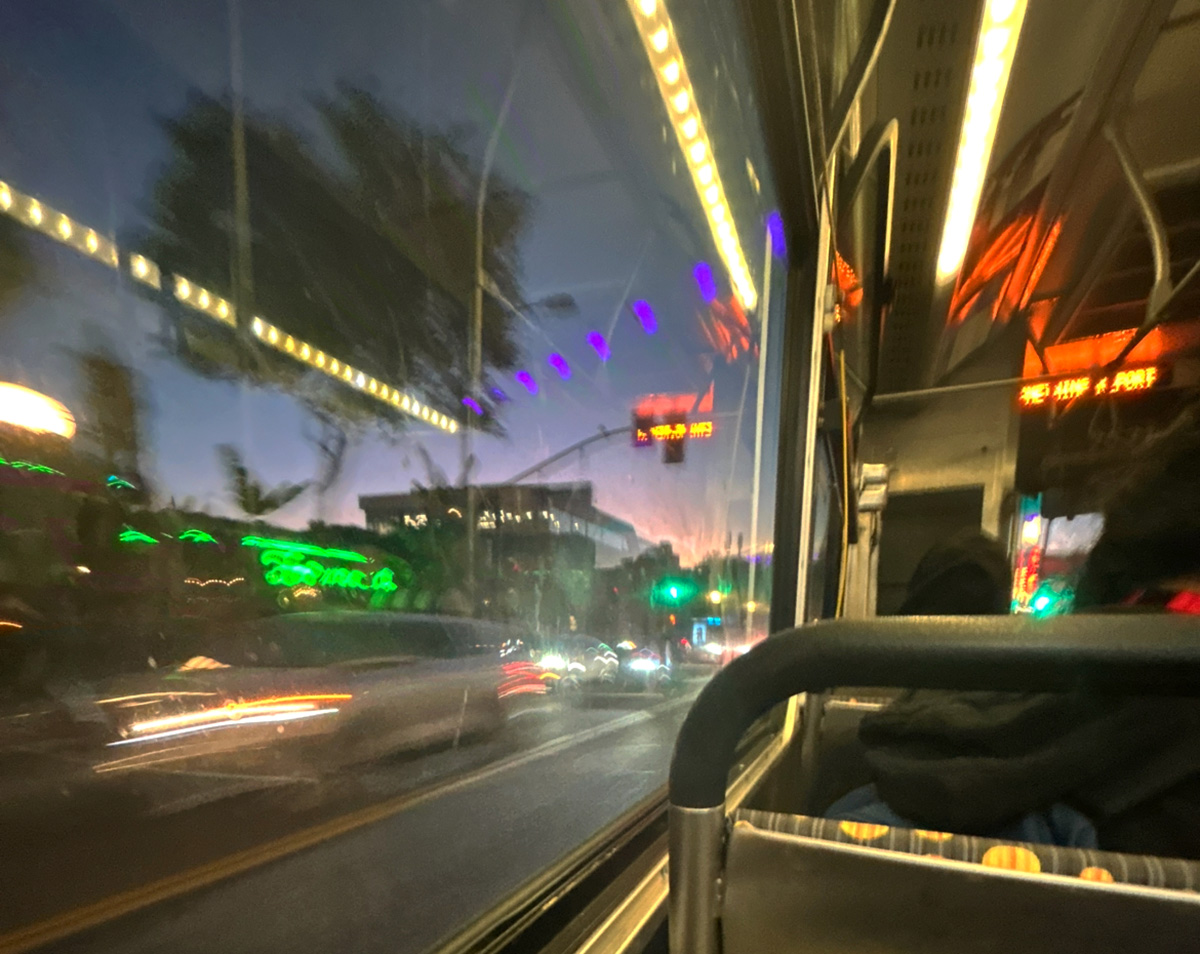
In the first week of September, I boarded an early Coast Starlight, crying quietly over a cold bagel as the train departed. It was a 12-hour trip from Emeryville to Los Angeles: plenty of time, I thought, to steep in my sadness as I left the home I had made for the last several years to start a new one in a bright, shiny city. I sat in silence, watching the sun press itself into the sea off the Santa Barbara coast, water and night parting me further and further away from my friends and community.
When I arrived at Union Station, I stood at the platform and was surprised by how warm it was at 9 p.m. A giant skyscraper towered into the sky, glaring down at me with its golden glow and millions of windows. Welcome home.
Since then, I’ve made a truce with the city. I’d always been in its orbit, having grown up in a small, suburban town northeast of it most of my life. But trips into L.A. proper were reserved for special occasions: birthday dinners in Little Tokyo at our favorite restaurant, the now-defunct Sushi Komasa. I had never ventured into the region’s vast queer gems and safe havens: places that I’m sure would have provided me assurance that it was okay to have crushes on people who weren’t boys (or to not have crushes at all!).
As a computer kid, I subsisted on brief explorations on YouTube or clicking through various fanfiction forums. My queerness existed in the gay kiss scene of Cruel Intentions, reigniting with each press of the “play” button and shelved away when the tab closed. I operated like this for years, burying my desires and performing diligent, dependable elder child during the day.
Today, I’m a community reporter at a proudly LGBTQ+ news outlet, where I get to spend most days with other queer folks, listening to their stories and trying to document their lives.
In the last few months, I’ve attended parties, press conferences, community gatherings and rallies that center the liberation of queer folks, specifically those who are multiply marginalized. I’ve spoken with strong leaders and advocates for the TGI movement, who fiercely advocate on a daily basis for greater protections for transgender, gender nonconforming, and intersex people.
One of my most joyous reporting moments at the Blade includes attending the Los Angeles LGBT Center’s annual Queerceañera: where beloved drag diva Lushious Massacr floated across a stage, embraced by the love of her community as she celebrated and reclaimed the coming-of-age ceremony. With queer joy and communal love, she transformed into a beautiful, cascading butterfly on the precipice of flight.
I also attended a transformative HIV/AIDS art exhibition curated by Anuradha Vikram, where a small gallery morphed into a living archive of revolutionary activism spearheaded during the HIV/AIDS epidemic of the 1980s. The intersections of history and art, and the unity amongst various queer people during this period, were truly inspiring to witness. Speaking with Vikram was instrumental in my early days at the Blade, and our conversation made me think critically about the ways queer activism has shifted dramatically in the decades since the HIV/AIDS epidemic.
How are young, queer people channeling their activism today? This is a question that continues to power my work as I report on our communities.
Another valuable and crucial experience I had while working at the Blade was on World AIDS Day, where I covered a reading by the APLA Health writers group. Dozens of us stood by the pillars of West Hollywood’s AIDS monument and listened to the beautiful, moving prose of several writers who all had personal ties to the HIV/AIDS crisis of the 80s. I still think about John Boucher’s gorgeously crafted, heart-wrenching story.
“I remember Rex coming through our front door after a trip, coming home from work, or at 2:30 in the morning after the bars had closed and he’d finished singing karaoke. As the black lacquer door opened into the goldfish-colored room, he’d sing: ‘Hello apartment,’ Boucher read. “He was greeting our life. His tenor voice was clear and true, his eyes the color of cornflower blue against the pinkish orange sunset of our living room. This is home.”
These stories, rendered through the heartfelt voices of the people around me, remind me of the importance of this work. I struggled with my identity for most of my adolescence and early adulthood, and only began to really accept and understand myself around four years ago, when I began to develop blossoming friendships with queer people who were unabashed about their art, their euphoria, their juicy crushes. Their visibility and their joy, which became our shared visibility and joy, guide me in my most difficult moments.
This year, I suffered the tremendous loss of a dear friend who was a blazing, warm light for her community. She was a poet and artist who was outspoken in her activism and in her bold self-expression. She rejected shame with every fiber of her effervescent being and advocated for the protection of fellow trans women, disabled people, and queer people of color. Her loss is one I will carry with me forever, and anchors me in my work.
My work is for Mercedez, my queer AAPI siblings, queer youth, queer immigrants, queer disabled people, and everyone else who exists on our vast spectrum.
Commentary
The Westside is unaffordable. Allowing for more housing can help
Three young Westside elected officials call for urgent action to fix our housing shortage—and make room for the next generation.
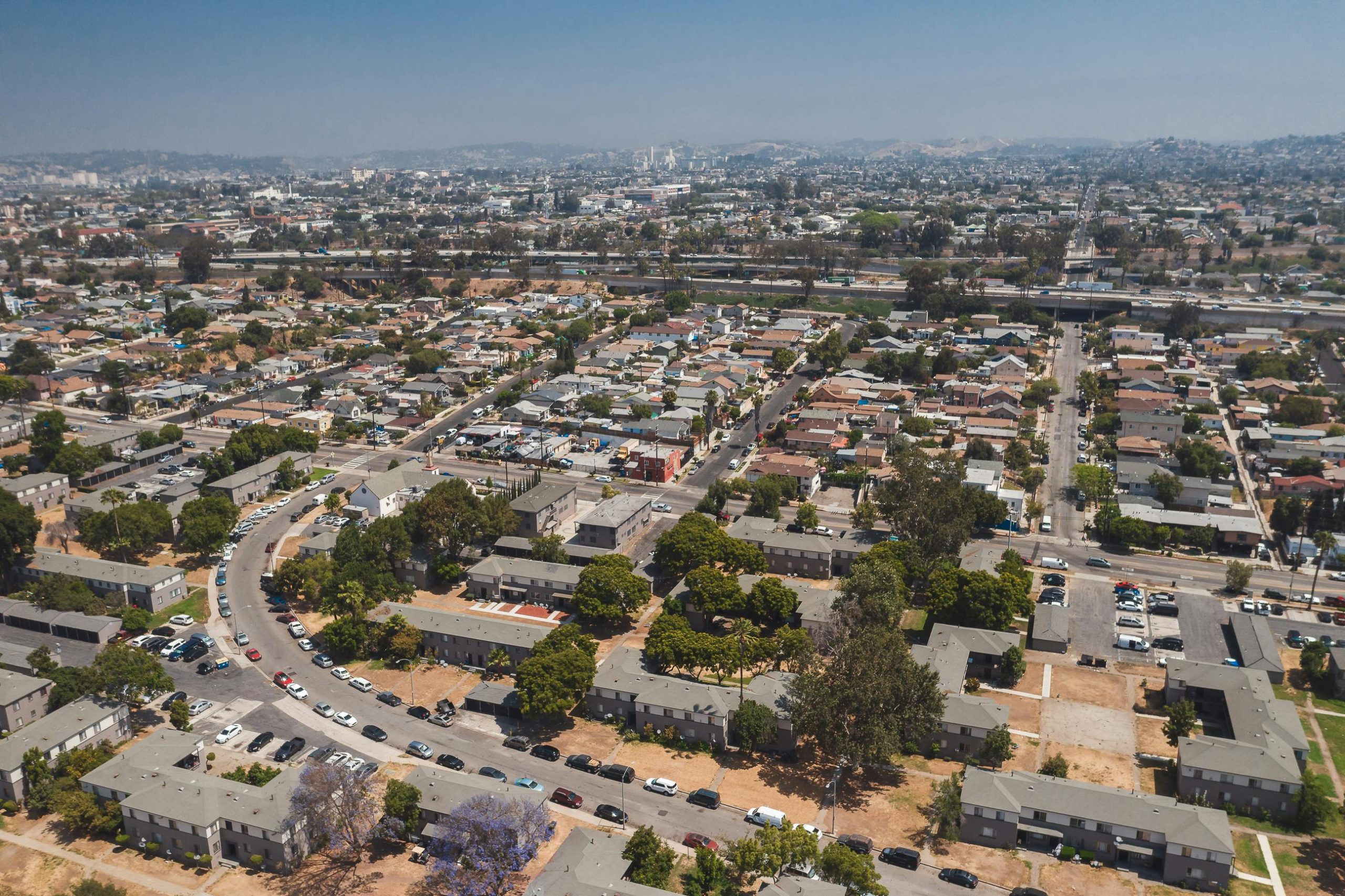
Over the past few decades, LA’s Westside has changed rapidly. Rents have skyrocketed. The median home now costs over 12 times the median household income—one of the worst ratios in the state. Our housing shortage is pricing out the immigrants, artists, workers, people of color, and young people who make the area so vibrant.
As three elected officials under 40 representing West Hollywood, Santa Monica, and Culver City, we’ve experienced this crisis firsthand. Countless young people in our cities can’t afford to build a life in the communities they grew up in, and others who made their home on the Westside because of its inclusivity are now being displaced by a housing market becoming more unfriendly every year.
For decades, West Hollywood has been a refuge for LGBTQ+ people who couldn’t live openly elsewhere, and both Santa Monica and Culver City were home to large working-class communities. But today’s housing costs are pricing out many of the Westside’s young queer people, workers, Black and brown residents, and seniors hoping to retire.
The affordability crisis is hitting our queer communities especially hard. LGBTQ+ people in LA County are more likely to rent their homes –and more likely to be cost-burdened by housing – than their straight counterparts. Queer people are twice as likely to have experienced homelessness within the past five years. For trans and nonbinary folks, the difference is even more stark. 25% of trans and nonbinary people in LA County are currently unhoused compared to 1% of the general population.
We understand that the housing shortage has been a direct result of decades of policy failures in our cities – and it’s beyond time we finally address it with urgency. If we want the Westside to remain a welcoming place –not just for the wealthy, but for everyone –we have to make it possible for more people to live here. That means building more homes.
Enter SB 79, a bill under consideration in the state legislature that would make it legal to build small apartment buildings near major transit stops. It’s desperately needed across LA —but especially in communities like ours, where access to cleaner air, strong schools, and good jobs should be available to more than just long-time homeowners and the wealthy.
Too many neighborhoods around LA’s transit stations are still reserved exclusively for single-family homes, even as taxpayers have invested nearly $80 billion in expanding our public transit system. That keeps housing costs sky high and prevents working families from living anywhere near them.
The result is both unjust and inefficient: underused transit, supercharged housing prices, and the workers our city relies on being subjected to hours-long commutes.
It doesn’t have to be this way.
We know that when there’s housing near transit, people use it. At stations like MacArthur Park and Wilshire/Vermont—which are surrounded by apartments—tens of thousands of riders board each day. And when we reduce car dependence, we also reduce pollution: climate experts estimate that adding homes near transit can cut climate-warming pollution by up to 31%.
Some worry that new housing causes displacement. But history and research show the opposite. When we don’t build enough homes, demand spills over into older, more affordable neighborhoods — driving up rents and pushing low-income renters out. By making room for more people, we’re actively reducing pressure on existing tenants.
On the Westside, we’ve fallen behind. We’ve created tens of thousands of high-paying jobs, but built far fewer homes; indeed, the populations of Santa Monica, Culver City, and West Hollywood haven’t grown meaningfully in over 50 years. That stagnation, driven by restrictive zoning, has priced out all but the most affluent.
SB 79 gives us a chance to change course.
This is about more than zoning. It’s about who gets to live here and what kind of communities we want to be. Are we comfortable becoming a place of diminishing diversity, where only the wealthy can belong? Or can we foster places where teachers, nurses, service workers, artists, LGBTQ+ people, and young families can still build their future?
We’re proud to represent cities committed to tackling this crisis head-on. With SB 79, our state will take a major step toward a more affordable, inclusive future.
Chelsea Lee Byers is the Mayor of West Hollywood, Jesse Zwick is a Santa Monica City Councilmember, and Bubba Fish is a Culver City Councilmember.
Commentary
Love in the time of net worth: The Geffen-Michaels mirror and the myth of pure intent
David Geffen and Donovan Michaels’ split is making waves, but the real story isn’t about scandal – it’s about the uncomfortable truths of love, power, and mutual arrangement.
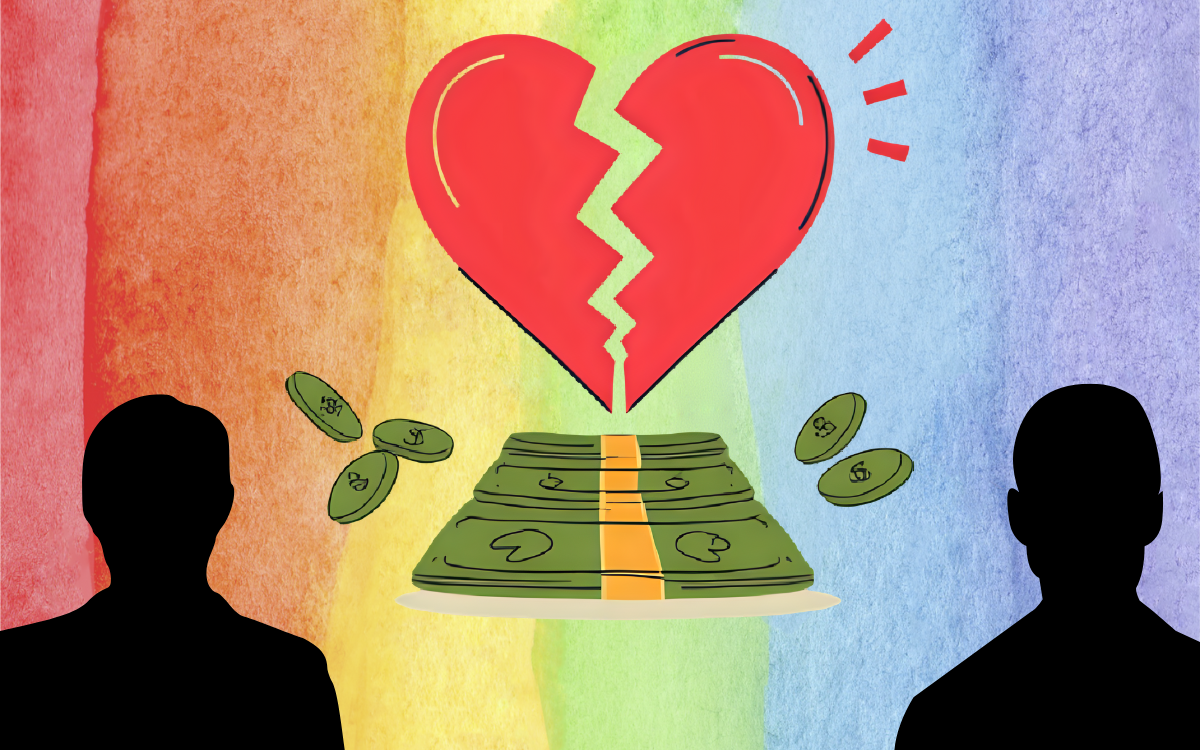
Recently, the gay internet was abuzz with the news that entertainment mogul David Geffen, 82, and his tad bit younger husband, model Donovan Michaels (né David Armstrong), 32, were splitting. It was the breakup heard around the mega-yacht docks from the waters of Fort Lauderdale to Marina di Capri, from tweet to shining tweet.
Geffen is, inarguably, one of the most powerful entertainment titans of the last half-century – a music kingpin, Broadway backer, and billionaire art collector. Michaels, Geffen’s husband for two years but together for nine, came from a background that couldn’t be more different: foster care, survival, and, eventually, modeling and escorting. The two first clocked each other on Seeking.com (previously, SeekingArrangements.com), where they each sought an arrangement that benefited both parties, each with their very different yet historically compatible motives.
Now that the union is dissolving, the backlash has come hard and strong. Geffen is being painted as the predatory puppeteer, quite possibly viewing his child of the sugar as a crystal-cut and curated addition to his art collection. Michaels, meanwhile, is being labeled a gold-digging hustler. So subtle the internet is…
But providing such defamatory, diminutive, and, quite frankly, two-dimensional commentary on the recently divorced is too easy. Perhaps we can approach Geffen and Michaels’ nullification of nuptials with a touch more compassion and understanding. So many facets to consider, so little time. Let’s dive in.
Of course, the age-old “trophy boy” trope has been given a facelift here. Overdue? Maybe. We have seen this dynamic time and time again. An older, wealthier daddy (or grand-daddy) shacks up with younger, shinier beau with cheekbones to die for. Both parties involved are hungry in their respective avenues. Comparable instances, however, occur in the straight sphere quite often and we barely bat an eyelash at it. Leonardo DiCaprio swaps out twenty-something year old models like iPhones, resulting in little more than a meme or twelve that he laughs along with. Others win elections.
But when a billionaire butt-connoisseur “friend of Dorothy” does it? Oh no, a scandal. Of course, there’s truth to the concern. Geffen, worth over $7 billion, is at that level of wealth that distorts reality, intimacy, and so, so much more. Michaels, on the flip side, was granted access to a world he wanted into and (hopefully) stepped over the glistening threshold willingly. The question isn’t “Did he know what he was getting himself into?” It’s “Are we prepared to admit that mutually beneficial arrangements are, in fact, also ‘real’ relationships?”
Yes, there’s a 50-year age gap. Yes, that’s pretty far out. But let’s be real for a second – May/December pairings are far from new. What’s intriguing this time around is how judgment shifts when the couple is both same-sex and interracial. A touch of the Meghan Markle effect with a queer twist at play? One can only wonder. Had Geffen been a straight mogul shacking up with a 30-something pageant queen from who-knows-where in the Midwest, folks would still gossip, no doubt, but there’d be less performative outrage and less cultural micro-dissection.
Is it empowering or exploitative? It is silly to believe that only one is possible here. Could it not be both transactional and emotional? The public is far too obsessed with seeing things as black and white, predator and victim, groomer and opportunist, day and night. On the contrary, reality rarely functions in this binary fashion. Perhaps Donovan found safety, luxury, and more in their relationship. Geffen likely found beauty, admiration, and companionship he didn’t anticipate finding as an octogenarian. The relationship might’ve had its roots in a good ol’ transaction, but maybe it evolved into something more emotionally complex, not to mention legally binding.
It was the lack of prenup that likely fueled the headlines and had people clutching pearls. But if we drop the tabloid tone, it’s worth noting that Michaels offered Geffen the bulk of his twenties and gave his energy to a relationship that asked him to show up emotionally, socially, and (reportedly) carnally. This begs the question, if one spends nearly a decade in someone else’s gold-gilded ecosystem, should they not walk away with something to say for it?
A settlement in this case is not necessarily opportunistic in nature. It is back pay for time served in the multi-billion dollar empire of Bev Hills royalty. Whether that includes a Malibu house, a Warhol print, or just financial breathing room, don’t hate the player. Nine years in Geffenland is practically tenure.
The reality is, partnering purely for love is a relatively modern concept. For the grand part of recorded history, people were motivated into partnership by status, protection, land, and survival. Romance is a Disney-fueled concept barely older than modern plumbing. The word lust predates the word love, and frankly, so does practical partnership.
If anything, Geffen didn’t hide the terms. He made the offer. Donovan accepted. And both benefited. That is, until the arrangement got blurred with real feelings, real power, and real legal exposure. That’s not scandalous. That’s just human nature at its most raw.
Geffen’s legacy has always been about control. He’s curated everything: from record empires to MoMA board appointments to multimillion-dollar art installations. So what happens when the most uncurated element – his relationship with Michaels – doesn’t quite follow the script he had drafted in his mind?
Look, is Geffen a hoarder of wealth in a world where millions go hungry? Unquestionably. Is he an avatar of late-stage capitalism’s grotesque gap between rich and poor? Most def. But when it comes to his relationship with Michaels, Geffen’s heart, however warped by luxury and excess, seemed to be authentically engaged. He didn’t treat Michaels like single-use plastic. He married him. No prenup. And for someone whose entire life has been about contracts, that’s more than a gesture, it’s a leap of faith. Maybe even trust? Maybe…
So give the poor ol’ queen a break. He hasn’t done anything new. Except, perhaps, look out for the well-being of a sugar child he fell deep and hard for. Listen, I get it. It’s messy. But let’s not pretend it isn’t also deeply, heartbreakingly human.
Geffen will be fine. I have a hunch he has his student loans paid off. Michaels? Hopefully, he will be too. If not today, then eventually. He’s young, sharp, and, fingers crossed, a soon-to-be billionaire. Whatever he walks away from this with, he’s already beaten the odds stacked against a dude with his upbringing.
And the rest of us? We should stop treating their split like a morality play and start treating it like a mirror. These kinds of relationships – cross-class, cross-race, cross-power – are all around us every day – just with less TMZ coverage. The only difference is Geffen and Michaels gave it a name and gave us a front-row seat to see what happens when affection meets arrangement at the icy pinnacle of the 1%.
Three cheers to Mr. Geffen for allowing his heart – and his pocket – to take a leap of faith and embark on a new romance in his golden years; and three more for Michaels, who possesses the wherewithal to advocate for himself and his needs. In a day and age where tuning into the news is an almost constant reminder of the mess that is humanity, it is a joy to know that a foster child can one day become a billionaire. Talk about a Disney ending.
Viewpoint
I’m a queer Iranian Jew. Why I stand with Israel during this conflict
‘Hands Off Iran’ movement is erasure, not solidarity
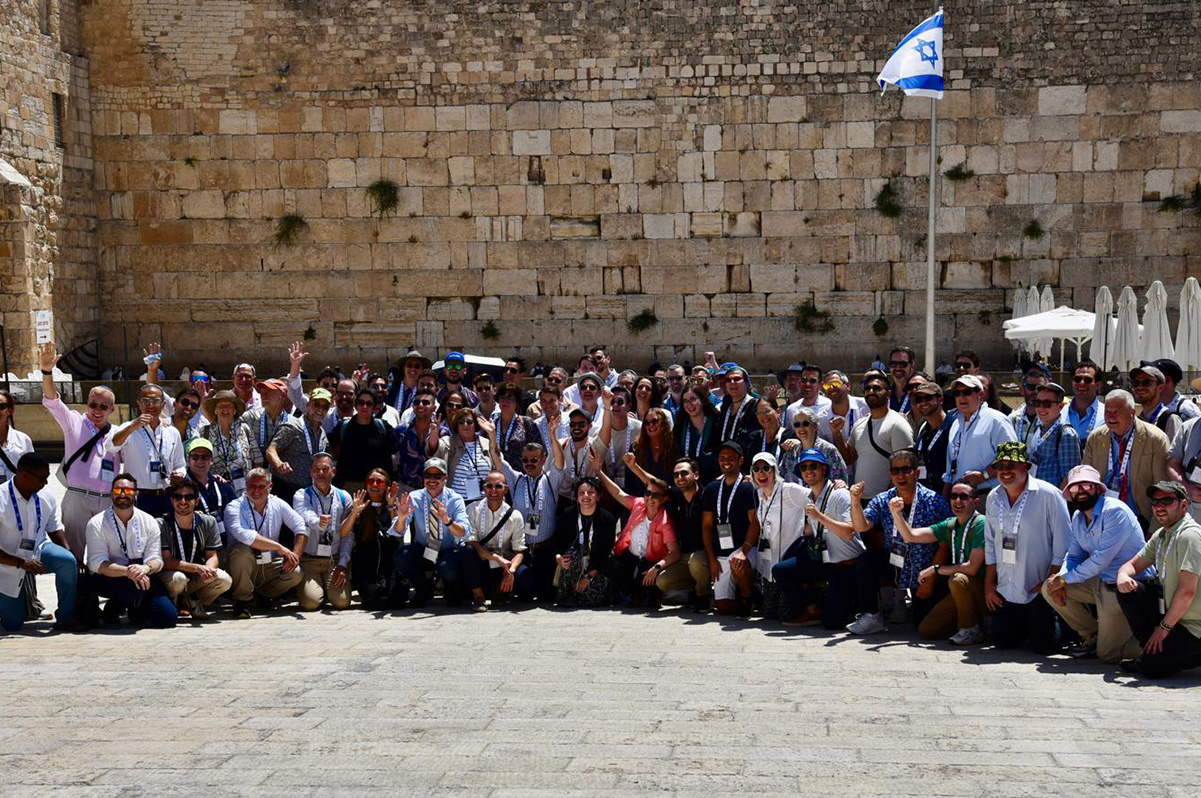
The sirens cut through the night, jolting me from sleep. My heart pounds as I lie in bed, listening to the explosions outside. I don’t have to run — my Airbnb bedroom is a “mamad,” a reinforced bomb shelter built into the apartment. Though the windows are sealed, I can feel the building shake with each blast. This is my reality now.
I arrived in Tel Aviv just before the escalation with a delegation of North American LGBTQ leaders. We came to stand in solidarity with Israel’s LGBTQ community, which has increasingly been isolated by the global queer movement. After the delegation’s five-day mission, I had planned to stay an extra week. But on my first night here, the war broke out.
Despite the fear and chaos, I’m proud to be here. While I’m not a permanent resident of Israel — I live in Los Angeles, home to the largest Iranian Jewish community in the U.S. — I feel like I’m exactly where I’m meant to be. I work in both Iranian and Jewish advocacy spaces, and being here during this pivotal moment is an act of presence, of witness, and of resistance.
The adrenaline of seeing Israel strike back against the IRGC gave way to the sobering realization: I am in a war zone. But I know I’m safer here than I would be in many other places — because Israel protects its people. With shelters. With missile interceptors. With warnings. With a government that values civilian life.
In Iran, people don’t have that. The regime in Iran — and I use that term deliberately, because the regime is not the people — cut off internet access to prevent civilians from receiving IDF warnings before strikes. They wanted maximum casualties. They wanted suffering. They wanted images to manipulate. The same regime that imprisons, tortures, and executes LGBTQ people. The same regime that stripped my family, and millions of others, of their home.
So, when I heard the same anti-Israel activists who have spent the past 20 months calling to “globalize the Intifada” — a clear genocidal chant — adopt the new catchphrase “Hands Off Iran,” my heart sank. This is not solidarity — it’s erasure. These people defend the very regime that forced my parents to flee, tearing our family apart.
Romanticizing the Iranian regime with protest signs and slogans isn’t just tone-deaf. It’s prioritizing aesthetics over truth, trend over substance, and optics over people. It’s especially painful when I see it coming from my LGBTQ peers.
Growing up queer in the Iranian Jewish community during the ’80s and ’90s wasn’t easy. It was LGBTQ spaces that taught me how to stand tall in my truth — how to live authentically and reject shame. But now, those same spaces often turn their backs on me because I’m a Zionist, a widely misunderstood movement which simply calls for Jewish self-determination.
The hypocrisy of the current anti-Israel rhetoric is glaring. The “Hands Off Iran” movement is misguided, providing cover for a regime that tortures its citizens. Yet these activists were nowhere to be found during critical moments like the 2022 “Woman, Life, Freedom” uprisings, when Iranian women risked their lives burning their hijabs in protest. After Mahsa Amini was murdered simply for showing a little hair, those cheering “queers for Palestine” said nothing. This silence in the face of tyranny is not progressive — it’s dangerous.
For me, this conflict is not theoretical — it’s personal. I’ve witnessed firsthand how the Iranian regime targets LGBTQ people, religious minorities, and women. In Israel, I’m free to be who I am — a queer Iranian Jew. If we fail to stand with Israel, we fail to protect the values of freedom, human rights, and dignity. Israel is more than just a country — it’s a refuge for people like me, and it must remain that way.
As I write this, a fragile ceasefire is in place. But even with the quiet, the clarity remains. Israel is more than just a nation. It’s a refuge. And it’s worth standing up for — not because it’s flawless, but because it’s real. And because without it, people like me — queer, Iranian, Jewish — would have nowhere to turn.
Matthew Nouriel is a digital producer at the Tel Aviv Institute, Community Engagement Director at JIMENA, and a queer Iranian Jewish activist. He lives in Los Angeles.
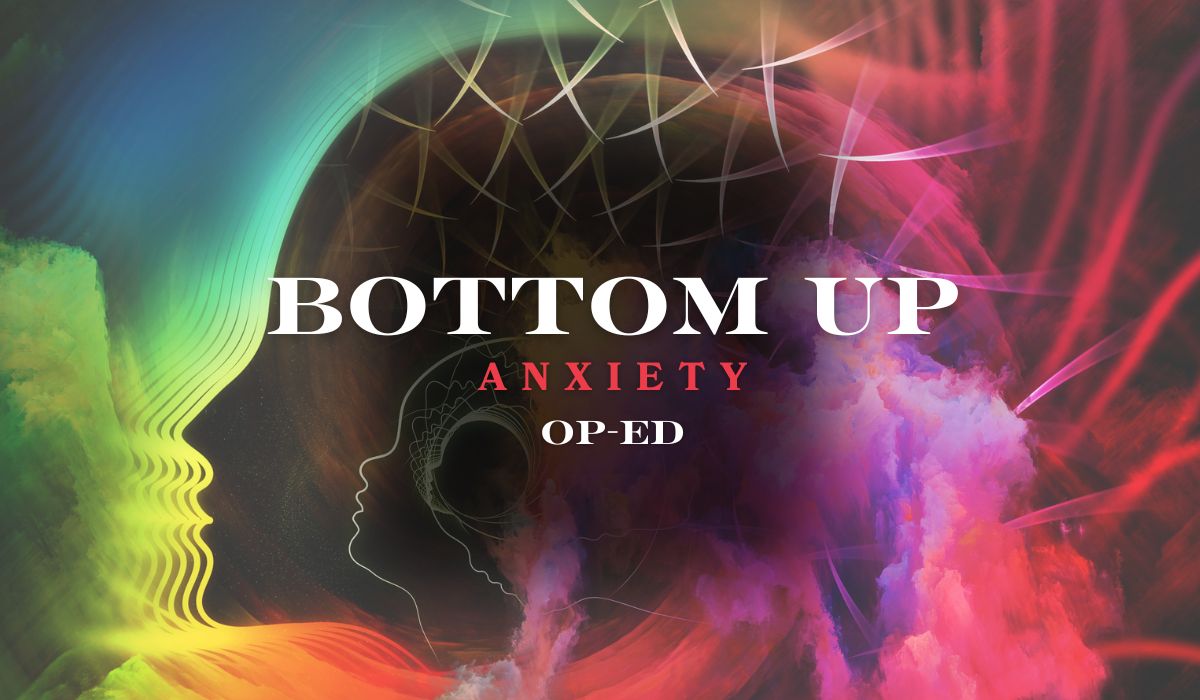
“There’s nothing wrong with you, you’re just built different. Like a Ferrari,” said my cardiologist during my latest visit.
I laughed.
He went on to explain my test results and elaborate on his analogy. But first he asked me a question I thought was completely unrelated.
“Are you an anxious person?
“No doubt about it,” I answered.
At times, in my average day-to-day life I felt like I had just run a marathon and my heart was racing. When I started taking my health more seriously and got on a consistent schedule with yoga, I noticed that my heart always felt like it was jumping out of my chest. No matter what emotions I was feeling or what external or environmental factors were involved, I always felt like I was riding on an adrenaline rush. It was hard to focus on the meditative type of yoga because I always felt my heart pounding in my ears and chest.
The first stop in my journey for answers was my primary care physician who said my strong heart palpitations might just be anxiety, referring to the type of anxiety that starts with thoughts that often spiral out of control, triggering a body response such as elevated heart rate, sweating and a number of other responses.
I shrugged off her response about anxiety because I thought for sure that wasn’t it–I felt in control of my thoughts.
She referred me to cardiology just to make sure there were no abnormalities a simple electro-cardiogram couldn’t catch. After multiple cardiologist visits, I was given a heart monitor that tracked my heart rate for a specific amount of time. The cardiologist read the results of the heart monitor and said there wasn’t really anything to worry about. Something the heart monitor caught during the five-day period that I wore it, was a consistently elevated heart rate.
The cardiologist elaborated on his car-heart analogy.
“You’re a Ferrari and I’m a Honda Civic,” he said. “We both start here (motioning at a start line for a race) and when we accelerate, I stay here and you’re way over there.”
Hearing him compare me to a Ferrari, while he compared himself to a Honda Civic, was the peak of my visit.
He said that my accelerated heart rate was probably causing me to feel anxious because from the moment I awaken–I’m racing. An overproduction of adrenaline starts to build up and the reaction is then felt throughout my entire body.
Things started to make more sense.
The hyperactivity I struggled with as a child and was diagnosed and treated as Attention Deficit Hyperactivity Disorder–was that actually a misdiagnosis because in reality I just have an elevated heart rate, causing an overproduction of adrenaline?
This ‘diagnosis’ suddenly made me realize why most of my young adult years felt like a constant disaster. I have a lethal combination of a wonderfully hyperactive mind and an overproduction of adrenaline building up in my body. No wonder I always felt tired.
After reading the results of my exam, the cardiologist prescribed blood pressure medication–something that made me feel like I had suddenly aged 50 years.
The way he explained the medication and the way that I made sense of it, was that he was laying out speed bumps so this Ferrari can go the speed limit.
“It’s going to make you feel better,” he said.
In my head, I thought “Did this man just prescribe me with literal chill pills?”
Yes, he did.
At that moment, I heard my mom’s voice in my head always saying: “Ay tú, siempre bien acelerada.” Which roughly translates to: ‘you’re always racing for everything.’
If a lack of patience is hereditary or a learned behavior, I definitely got it from my mom. My biggest self-identified character flaws are my lack of patience and need to be in control of things I feel like others just don’t do fast or well enough–enter my job as editor.
In 2023, I started seeing a psychiatrist regularly. At first, it was to deal with a painful break-up and the self-doubt, depression, suicidal thoughts and financial instability that came with the situation. Then, it turned into a long journey of identifying and facing the childhood trauma I carried on my shoulders. I knew I had to if I wanted to better the relationships in my life.
This has been quite a journey of undiagnosed anxiety. I know for a fact it’s cost me a good amount of relationships and friendships.
Though I started off with a low dose for the medication, I immediately felt a difference.
The world seemed quiet for once. Like the noise I was somehow experiencing, was suddenly turned off. I realized I was no longer hearing my heart rate pounding in my ears.
At the psychiatrist, I explained to her the new medication I started taking and she said it made sense that I experienced anxiety. According to her, it was the type of anxiety that starts in the body, with that overproduction of adrenaline and it works its way to the top, where it begins to affect my thoughts.
It’s a bottom-up versus top-down approach to emotion generation.
At the psychiatrist, I explained to her the new medication I was prescribed and she said it sounded like what I was experiencing, sort of aligned with bottom-up emotion generation versus top-down.
According to an article on the subject, “bottom-up emotions are immediate, ingrained responses to a stimulus–such as an instant feeling of fear in response to a car pulling out in front of us. Top-down emotions are more conscious responses to the way we think about a situation–such as a feeling of anxiety after deciding that we didn’t study hard enough for a test.”
The instant response to stress is based off adrenaline. The overproduction of adrenaline from these responses causes the physiological response of a very accelerated heart rate and thus, the feeling of some sort of urgency–at all times.
I thought about something she had also said to me a few months back when we had some of our first conversations about anxiety and pre-historic human beings. If I had been an early human, she says, I would have had a better chance at survival because of that ability to sense danger. She said I would have better chances than, let’s say a less sophisticated primate, who is able to stare at a leaf for an extended period of time and not sense the tiger lunging toward them at full speed, ready for its afternoon snack.
In short, the medication I’m now on, and a vigorous cardio routine will balance me out and release the overproduction of stress and adrenaline my body stores naturally.
There is no one way to treat anxiety and there is certainly no one way to experience emotions, or the psychosomatic responses that happen as a result of stress and anxiety.
This is your reminder to listen to your body.
Viewpoint
Second Trump administration will put trans youth at further risk
American politics, culture has global impact

When Andrew Joseph White, a 26-year-old transgender author, released his third novel, “Compound Fractures,” a young adult thriller, last fall, it became an instant New York Times, USA Today, and Indie bestseller.
This book is a story about an autistic trans* boy who was dragged into a generational feud. It also mentioned President-elect Donald Trump and his influence on the working class in the American South. The popularity of this novel among young readers shows that modern day teenagers are more political than some folks from older generations expect them to be.
The novel became a bestseller in the midst of the 2024 presidential campaign and White, in his letter to readers, confessed that he wanted to give it a different intro, but had to speak about how tough it is to be a young trans* person in modern-day America.
Donald Trump on Dec. 22 confirmed the fears of A.J. White and millions of other LGBTQ folks from Z and Alpha Generations. At the AmericaFest conference, Trump promised to “stop the transgender lunacy” on the first day of his presidency. He was particularly speaking up against trans* young people’s rights, and against trans* adults’ rights to work with young people.
Donald Trump’s election also increased worries about censorship around children’s and young adult literature, especially in public and school libraries.
A new report by PEN America showed that during the 2023-2024 school year, book bans increased by nearly 200 percent, targeting not just books about gender and sexuality, but also about racial discrimination, mental health, substance abuse, and other social problems that young people are facing in the everyday world. Such bans are not just making printed books unacceptable for youth who cannot afford buying their own copies. They may prevent authors from writing new books for younger generations, which will also affect American mass culture.
Republicans throughout the U.S. for a long time have behaved more and more authoritarian toward youth. Republicans are trying to attack LGBTQ youth everywhere, erasing them from academia and implementing social media restrictions.
It is tough to be a young person in modern-day America under any administration, even without new laws. All American citizens under 18 can easily be prevented from expressing their religious and political beliefs, forced to stay in abusive environments, can be medicated and institutionalized without their consent, can be separated from their supportive community if their parents say so. Young people under 18 can also be tried in adult court, but they cannot vote or run for office.
All the decisions about their rights are made by people from the older generation.
It is legal to pay young people less for their work, and deny the right to manage their property. Young people from non-supportive families are denied any chances to have normal lives until they turn 18, or even 21. This is basically the situation in most Western cultures, but American teenagers could start to change the system with more informational freedom and support.
But now Donald Trump and his supporters are trying to make everyone believe that young people cannot have their own gender identity, do not have any rights to their body autonomy, and should not be asked about their own feelings until they turn 18. Republicans have also tried to deny young people basic knowledge about the complicated world around them, as if this knowledge could be magically downloaded into a person’s mind when they turn 18.
These dangerous trends will create a generation who is used to obeying, but not very used to thinking for themselves and trusting their own feelings. It is basically a very anti-American, anti-individualistic, and authoritarian tendency.
This tendency could have a long-lasting impact on world politics.
It is not an exaggeration to say that no other culture has had such a global impact on the way people around the world think than the American culture, and it is especially true on LGBTQ issues.
When I was an LGBTQ activist in Russia and Ukraine, my fellow post-Soviet activists spoke more about Stonewall and the AIDS epidemic in San Francisco than about the persecution of LGBTQ people in the Soviet Union. By my own experience as a person who was into LGBTQ blogging and journalism in the post-USSR; the videos, posts, features, and essays on LGBTQ issues that you could find on Ukrainian and Russian social media were either a direct translation from English or based on language that American LGBTQ activists created.
Young LGBTQ people around the world are learning to speak for themselves by watching their peer influencers on English-language platforms.
As a young transgender person from Ukraine who had never heard the word trans* until I was a teenager, I understood that I was trans* since I could remember myself. I began accepting myself only after I read more about the American LGBTQ movement.
I saw a lot of young people from Eastern Europe and the Middle East for whom Lana Watchevski became a first name when they came out to their parents, or the first person who helped them to believe that yes, they could be trans* and have a fulfilling life. Folks accepted their transgender peers because there was a transgender person in a Kardashian show. And we badly need more LGBTQ films, cartoons and books for young people, and more freedom for LGBTQ youth to find their own communities. All of this will more likely come from the U.S.
I think Americans would wonder if they find out how often I saw a situation like that — a young queer Gen Z Tatar person from a small, almost isolated Russian village — or situations when a Gen Z refugee person from Iran felt comfortable to chat about American LGBTQ culture, and use it to explain their own cultural context. American culture, and America’s online spaces are quite universal.
The same rules work for conservatives.
It is not enough that such dictators as Vladimir Putin, who mirror old American anti-LGBTQ conspiracies in his statements, say that LGBTQ ideas are dangerous for children, or conservative people all around the world began to use “groomer” rhetoric to describe people who support LGBTQ rights for young people when the pro-Trump Q-Anon movement went global. It is not just endangering LGBTQ youth worldwide, but increasing a gap in mentality between different generations.
But LGBTQ young people already know that there is something unusual about them, and they need information to figure out who they are. Americans could provide it via mass culture. It is worthy to note that Gen Z is much better at understanding the power of the internet, and American Gen Zers could literally make America greater by helping marginalized people in other countries.
Moreover, LGBTQ young people in America are speaking about their experience.
They are able to say what they need. All we need to do is listen, or we will have an international atmosphere where the new generation was raised in denial of basic rights to be themselves, and prevented from learning and thinking independently.
Editor’s note: The author uses trans* in order to be inclusive of nonbinary and gender queer people.
Viewpoint
What does Trudeau’s resignation mean for the queer community?
Be careful what you wish for
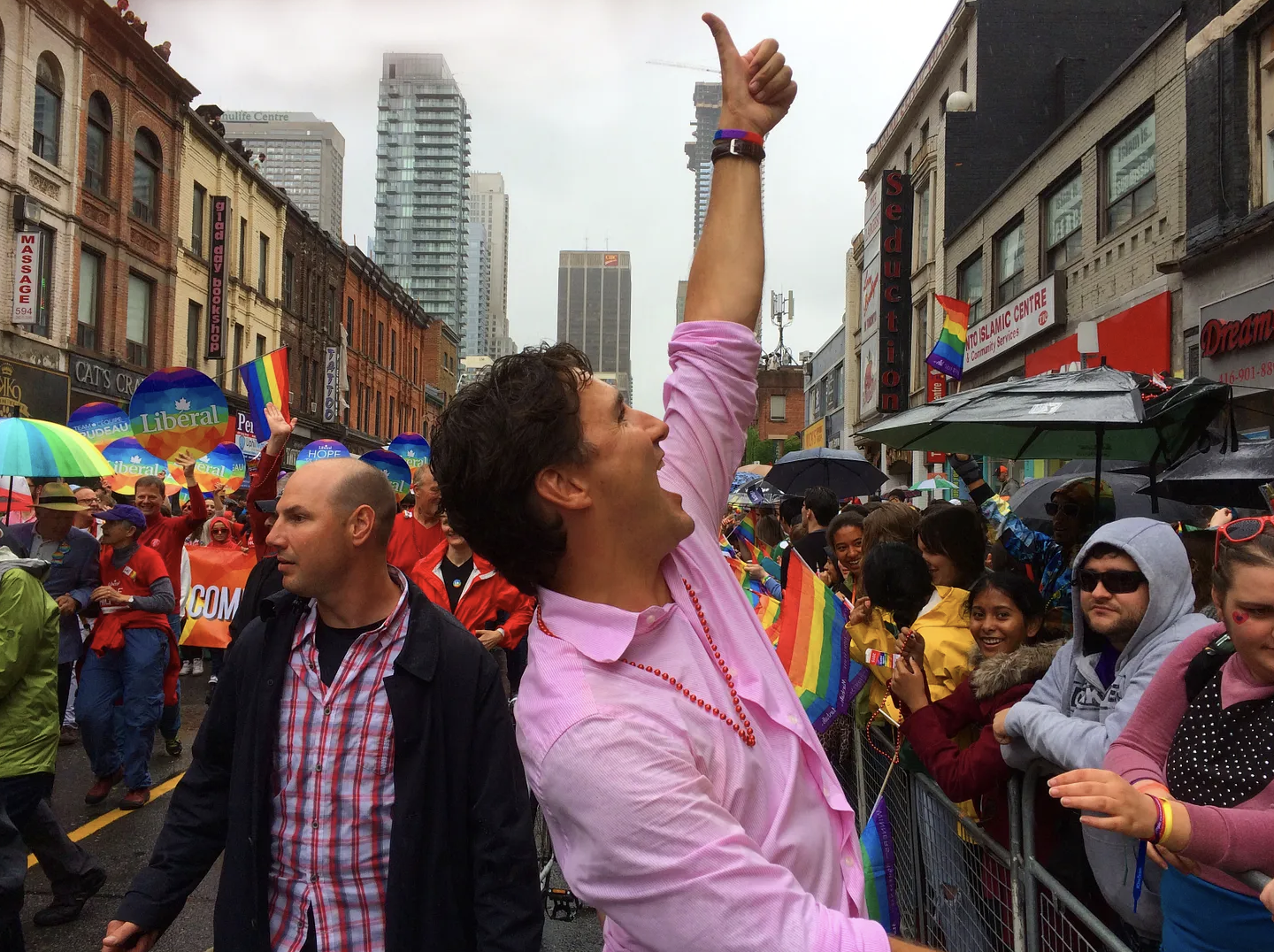
LGBTQ Global originally published this commentary. The Los Angeles Blade is republishing it with permission.
On Monday, Canadian Prime Minister Justin Trudeau announced he was stepping down as leader of the Liberal Party, and thus as prime minister as soon as the party chooses his replacement. There’s a lot to unpack about how we got here and what happens next, but it’s important to note exactly how transformative Justin Trudeau was on LGBTQ+ rights in Canada.
When Trudeau came to power in 2015, he was following nearly 10 years of rule under the Stephen Harper Conservatives. Harper’s Conservative Party was new force in Canadian politics, merging the old-school business-minded Progressive Conservative Party with the more radical and frequently explicitly bigoted Canadian Alliance/Reform Party. Harper was able to take advantage of Canada’s badly designed electoral system and fractured political left to win three elections with 36, 37, and 39 percent of the vote. Unbowed by the lack of majority electoral mandate, the Conservatives relished in forcing through their agenda without seeking support from other parties.
Harper immediately called a vote on repealing same-sex marriage, which had become national law only a year prior (the vote failed, which Harper’s defenders like to argue was the plan all along.) He immediately slashed funding to civil rights defenders who had won a string of court victories for LGBTQ+ people. Arts, culture, and tourism boards were warned they’d come under scrutiny if they funded queer groups and programs. The Conservatives blocked justice reforms like equalizing the age of consent and protecting transgender people in law.
After a decade of this shit, LGBTQ+ Canadians and progressives were exhausted and demoralized.
Trudeau swept into office in 2015 and set about immediately changing the tone. That first year was a lot of photo ops and press statements and Cabinet appointments designed to ensure that every marginalized community felt that they were represented in the new government. Trudeau even became the first prime minister to march in a Pride parade — something he did over and over in multiple cities.
Conservatives derisively called it all “virtue signaling” or and relentlessly told a certain segment of the electorate that they should be offended by it all.
But for the most part, the Trudeau government delivered, especially for LGBTQ+ people.
Two key reforms came about in its first term: An overhaul of the Criminal Code that removed a number of laws that were still used to target queer people, including a sodomy law that included a higher age of consent and a ban on gay sex if it involved more than two people. Also removed were several obscenity and bawdy house provisions that were used to harass queer communities.
The other was the trans rights bill, C-16, which included explicit protections for trans people in federal human rights law and included them as a protected class in the hate crime and hate speech provisions of the Criminal Code. It’s genuinely astounding in retrospect how much impact this bill had given how little it actually changed. Canadian courts had already ruled that trans people were generally protected under sex discrimination laws, and in any event, the federal human rights code doesn’t really cover much in Canada. The far more important provincial human rights codes had mostly been updated to include “gender identity” years before the federal code anyway.
But the passage of C-16 was also the launching pad for one of Canada’s most notorious far-right cranks, Jordan Peterson. An obviously disturbed and disgraced former university professor, Peterson gained a global following of anti-trans weirdos and incels by spreading lies about C-16. The community that formed around Peterson is now a core constituency of the Conservative Party under opposition leader Pierre Poilievre. Indeed, Peterson’s interview of Poilievre last week on YouTube was treated as some kind of Yalta Conference for cringey weirdos — and may be why Elon Musk took a sudden interest in Poilievre this week.
But that wasn’t all Trudeau delivered for the queer community.
The Trudeau government banned conversion therapy. It restored and expanded funding to civil rights groups, queer organizations, and the arts. It drafted and implemented a strategy to promote 2SLGBTQIA+ rights and inclusion across government (yeah, that the government’s official acronym.) It issued an historic apology, expungement, and compensation scheme for people who’d been convicted or fired from the public service under old anti-gay laws. It added an “X” gender option for federal ID (passports). It ended the ban on gay/bi blood, tissue, and semen donors.
Trudeau also guided Canada through an unprecedented series of global and national crises, including the COVID pandemic, the first Trump presidency, Russia’s invasion of Ukraine, an insurgency against the government (fully supported by the Conservatives), and a national reckoning with Canada’s shameful treatment of its Indigenous people.
But he was unable or unwilling to reckon with a series of major problems that have only been exacerbated by those crises: A soaring cost of living, a crumbling health care system, and a growing sense that nothing seems to “work” in Canada — from a post office that refuses to deliver packages, to parks that refuse to unlock their bathrooms, to criminals that go free because packed courts can’t hear their trials in time, to infrastructure and defense projects that drag on years beyond schedule and billions of dollars over budget.
The fact that most of these problems are under the jurisdiction of provinces that are almost entirely being mismanaged by Conservatives — sorry, the feds have to wear Canada Post — hasn’t blunted the people’s decision that Trudeau is to blame for every ill in Canada. Heck, that’s basically the Conservative slogan these days.
Trudeau probably should have stepped down a few months ago, to give the party a chance to choose a successor in an orderly fashion. Instead, he’s made himself a lame duck days before Trump takes office, threatening to annex Canada (and Greenland and Panama) through economic power, whatever the hell he means by any of that. The Liberal Party will soon announce rules for how a nationwide vote on the new leader will be held, and candidates are already jockeying into place. A new leader will have to be chosen by March 25, when parliament is recalled and the opposition is likely to force an early election, likely in mid-May.
According to current polls, the Liberal Party is cooked, and the Conservatives are poised to pull a near-sweep of parliament. Of course, it’s also possible that a leadership contest brings a fresh appealing face to the Liberals, and they’re able to recover some position ahead of the vote, whenever it is. Or Canadians will become concerned with the Conservative Party’s growing ties to Trump Republicans.
Poilievre, who cut his teeth in the Harper government as its most unscrupulous attack dog, is trying to position himself as the reasonable person who can unite and fix a fractured Canada. I have my doubts, given his entire public history. He’s also been notably palling around the worst anti-LGBTQ+ bigots in Canada and making vaguely threatening statements about banning trans women from bathrooms.
As Canadians get ready to head to the polls, it’s worth remembering what Conservatives do when they’re in power.
Viewpoint
Activists around the world offer potential path forward for American counterparts
Trump’s re-election will not stop fight for LGBTQ+ rights

Donald Trump early on Nov. 9, 2016, declared victory over former Secretary of State Hillary Clinton. My husband and I arrived in Jerusalem less than 48 hours later.
A Wider Bridge, a group that “advocates for justice, counters LGBTQphobia, and fights anti-Semitism, and other forms of hatred,” months earlier had invited us to participate in one of their missions to Israel. It was my first time in the country.
Our first meeting was at the Shalom Hartman Institute, which describes itself as a “leading center of Jewish thought and education” that seeks “to strengthen Jewish peoplehood, identity, and pluralism; to enhance the Jewish and democratic character of Israel; and to ensure that Judaism is a compelling for good in the 21st century.”
The staffer who greeted us welcomed us to Israel. He then pointed out that Benjamin Netanyahu had been prime minister for nearly a decade.
“Now you will know what it will feel like,” he said.
His comment was cold comfort to many of us who were still reeling over Trump’s victory. It is also one that has repeatedly come to mind as I continue to process the results of the presidential election and what a second Trump presidency will mean for this country, for me as a gay man, for the community that I cover, and especially for transgender Americans and immigrants who the first Trump administration disproportionately targeted.
The U.S. is certainly not the only country in which voters in recent years have elected authoritarian figures who pose a threat to LGBTQ+ rights.
Viktor Orbán has been Hungary’s prime minister since 2010. Javier Milei has been Argentina’s president since December 2023. Jair Bolsonaro was Brazil’s president from 2019-2023.
Netanyahu was Israel’s prime minister from 1996-1999 and from 2009-2021. He became the country’s prime minister for a third time on Dec. 29, 2022.
Hungary, among other things, has enacted a so-called propaganda law and effectively banned same-sex couples from adopting children since Orbán took office. Milei’s government in August closed Argentina’s National Institute Against Discrimination, Xenophobia and Racism. Bolsonaro, among other things, encouraged fathers to beat their sons if they came out as gay and said people who are vaccinated against COVID-19 are at increased risk for AIDS.

Activists who protested against Netanyahu’s proposed judicial system reforms say they would have adversely impacted LGBTQ+ Israelis. The prime minister postponed these efforts in March 2023 after a nationwide strike paralyzed the country. Israeli lawmakers a few months later approved them after opposition lawmakers stormed out of the Knesset in protest.
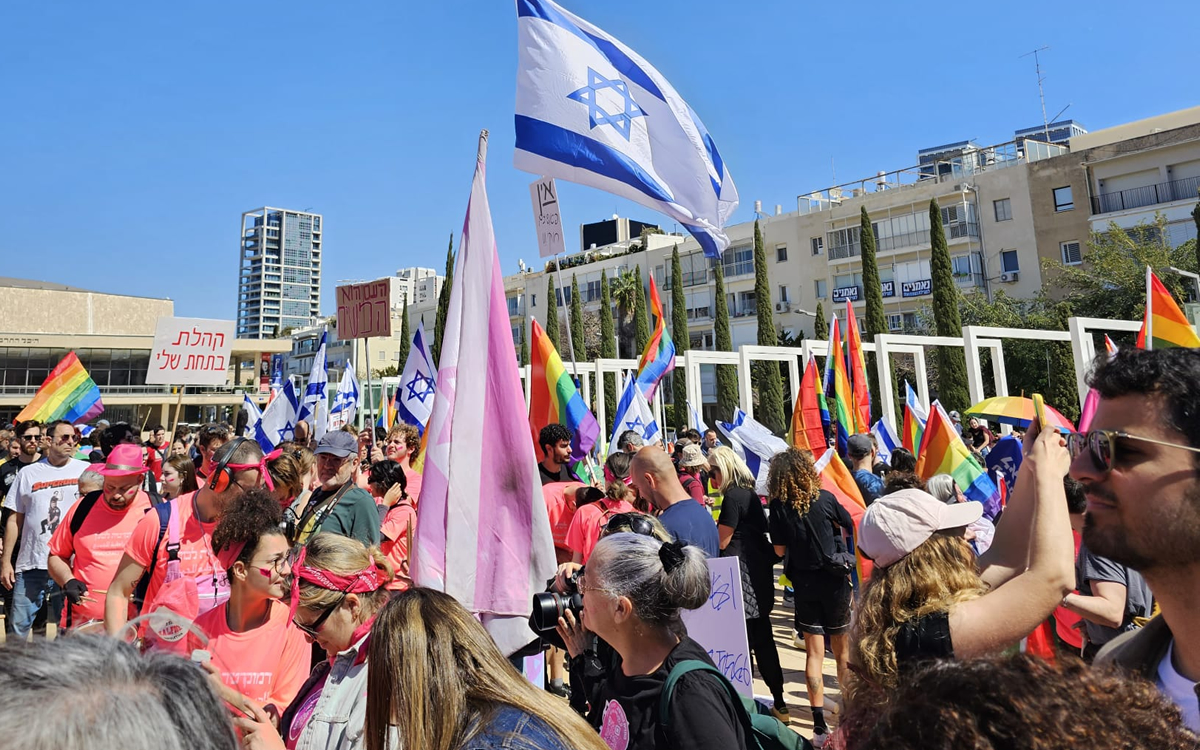
Israel, Brazil, Argentina, and Hungary are four of the dozens of countries around the world in which LGBTQ+ rights have been under attack — and the U.S. will certainly remain on this list once Trump takes office again on Jan. 20. It is certainly a frightening prospect for many in our community, but the activists in the aforementioned countries have not given up, and their American counterparts should not either.
“I’m not saying it’s not easy, but the direction is so clear,” András Léderer, the head of advocacy for the Hungarian Helsinki Committee, told me in April during an interview at a Budapest coffee shop. “They (the Hungarian government) can try to introduce setbacks. They can make life miserable, temporarily, but, you know, you just can’t go against the entire world in that sense.”
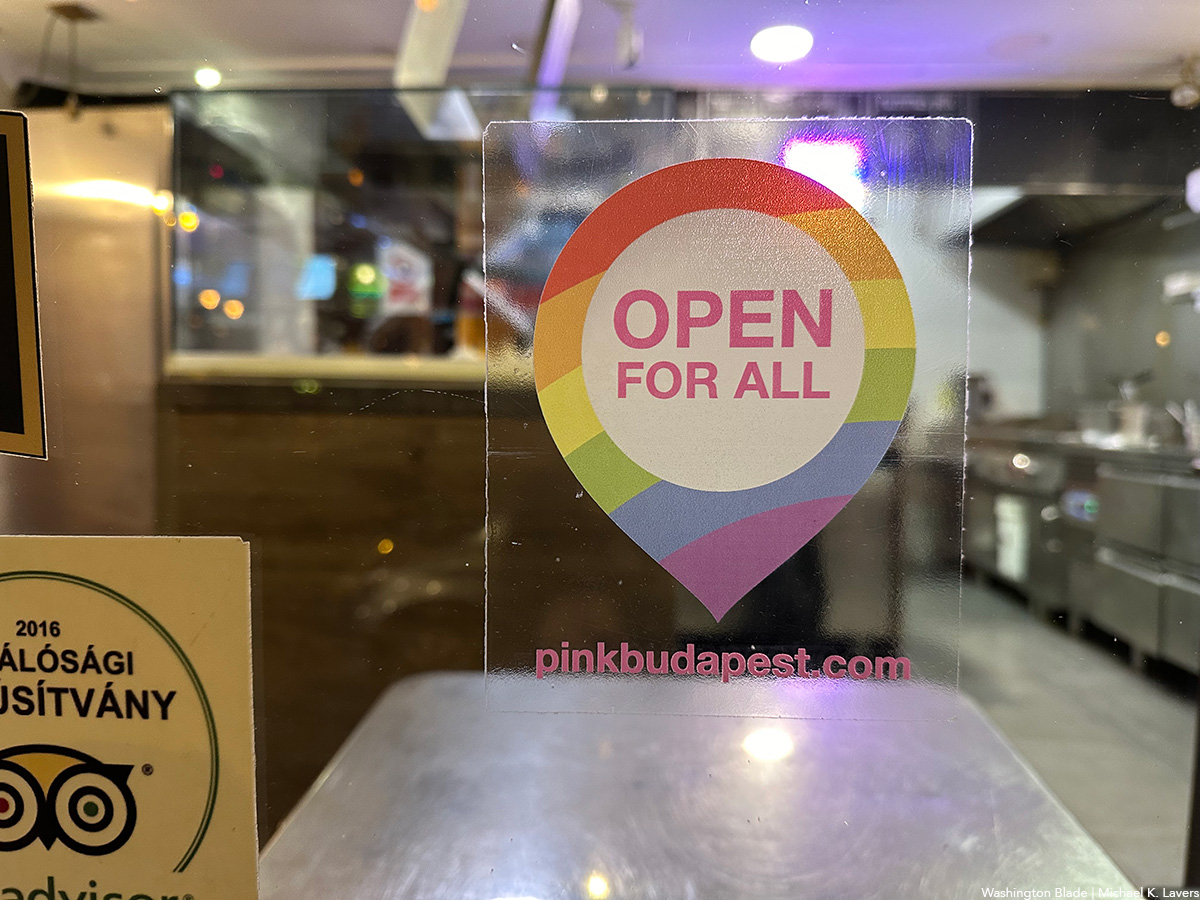
Hamas militants on Oct. 8, 2023, killed Israel Defense Forces Maj. Sagi Golan in Be’eri, a kibbutz that is near the Israel-Gaza border. His fiancé, Omer Ohana, with the support of Israeli advocacy groups, successfully lobbied Israeli lawmakers to amend the country’s Bereaved Families Law to recognize LGBTQ widows and widowers of fallen servicemembers.
“It was a big effort, and a big success,” Yael Sinai Biblash, the CEO of the Aguda, the Association for LGBTQ Equality in Israel, told me last month after she attended Golan’s memorial service in a Tel Aviv suburb.
Bru Pereira and Gui Mohallem, co-directors of VoteLGBT, a Brazilian organization established in 2014 with a mission to increase LGBTQ+ representation in politics, in response to Trump’s reelection said they and others in Brazil are “witnessing how grassroots efforts, particularly from marginalized communities, are crucial in defending LGBTQ+ rights under right-wing governments.”
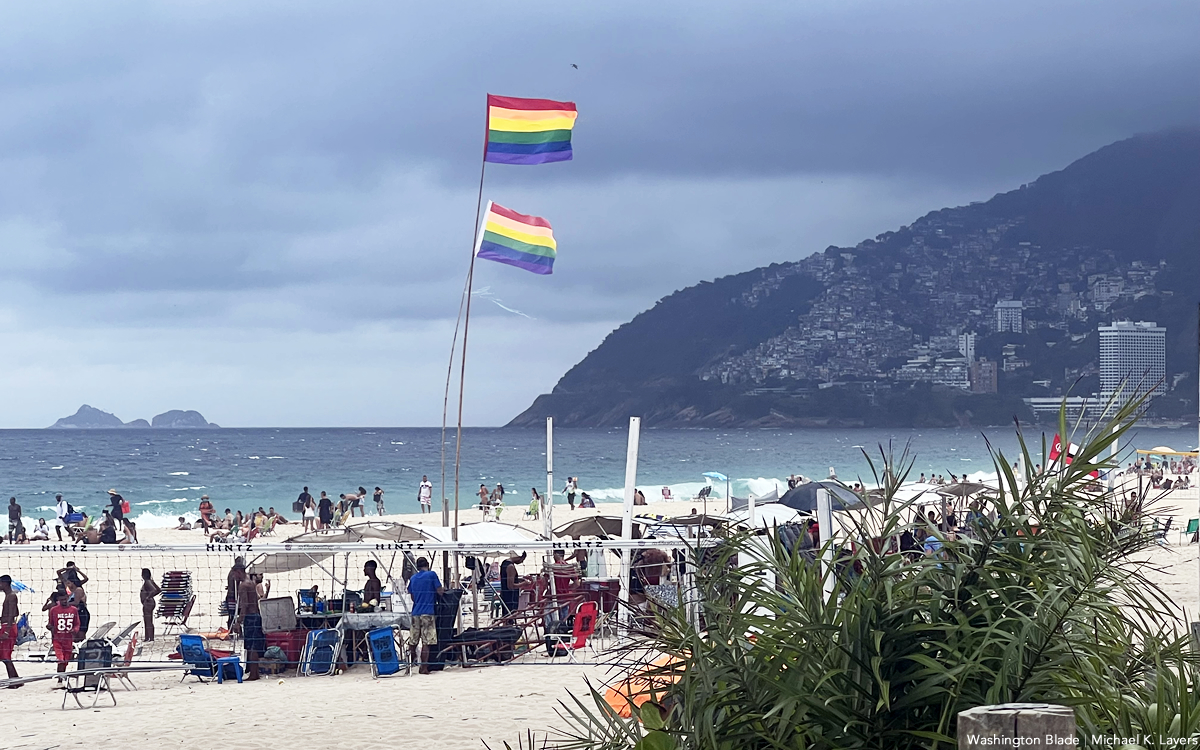
Donald Tusk became Poland’s prime minister last December after a group of coalition parties that he leads won a majority of seats in the Sejm, the lower house of the country’s parliament. President Andrzej Duda, an ally of the conservative Law and Justice party who opposes LGBTQ+ rights, remains in office as part of the governing coalition.
Deputy Justice Minister Krzysztof Śmiszek is openly gay. His partner, former MP Robert Biedroń, a member of the European Parliament.
Magda Dropek is an activist who ran for the Lesser Poland Regional Assembly in Kraków, Poland’s second-largest city, in April. Lesser Poland is among the provinces that had declared themselves “LGBT-free zones” ahead of the 2020 presidential election.
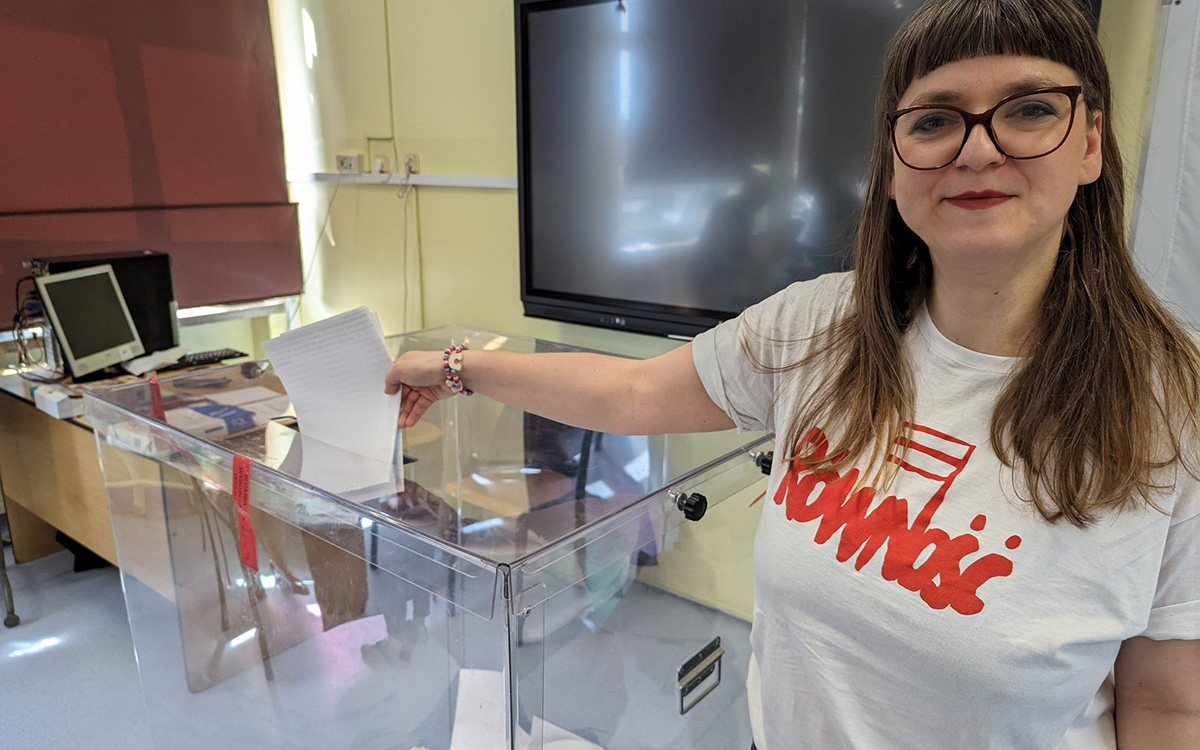
Dropek noted in her X post in response to the U.S. election results that Sarah McBride last week became the first openly transgender woman elected to Congress.
Dropek, like others, pointed out Russian President Vladimir Putin and other politicians respond to “antagonized societies” with “populism and (sacrifice) human rights.” Dropek, however, stressed the new Polish government presents an opportunity.
“What happened in Poland a year ago is still an important story that brings hope to others,” she said. “It’s a huge responsibility, but also work, because this is the time to change mentalities and educate using democratic tools. Because we’ve been coping with everything else, grassroots support and organization for so many years, you know yourselves.”
Trump leaves office on Jan. 20, 2029.

Growing up with a Christian mother and Hindu father, neither religious, Diwali and Christmas were my two favorite holidays because it meant gifts were to be received and delicious food was to be served! Hostess with the mostest, my mother would go out of her way to make each holiday special, where I felt lucky to celebrate all the American, Christian, and Hindu holidays (thinking Jesus was a Hindu God for the longest time.)
Each fall, we would help my mother, aka Indian Martha Stewart, clean our house and garnish the entrance with vibrant decor, only to welcome the VIP Goddess Laxmi — a symbol of wealth, prosperity, beauty, and power. The origin dates back to 5064 BC, the year Ram came back to Ayodhya with Sita after killing Ravana. As Ram and Sita returned back to India from Sri Lanka, the kingdom lined up and lit oil lamps to welcome their arrival. Thus the festival’s name comes from the Sanskrit word “Deepawali,” which means “rows of lights.”
Flash forward to today, where for us Indian American Hindu’s — Diwali is not just a celebration of the new year, it is the most auspicious annual event recognizing the triumph of good over evil. Over a billion people globally are joining hands while praying that their hopes, desires, and dreams come true.
Queerness in Hinduism
An outspoken teenager confused about religion, I took it upon myself to learn about all faiths and their views on homosexuality, afterlife, and the consequences of sin. In studying Hinduism beyond what my peers shared — I learned that Hinduism is the most liberal and open-minded group of teachings to exist. So liberal in fact — it is very queer. I don’t know if the Mughal conquerors or the British colonizers are to blame for India’s conservative nature — but when one digs into our scriptures — our holidays are all a celebration of mind, body, and soul.
- First Transgender Gods: Vishnu and Shiva have both been noted for transforming into female form — where Ardhanarishvara means “The Lord whose half is a woman.”
- Kama, most recognized in the Kama Sutra, is a tenet stating the desire for passion, pleasure, and emotion is a spiritual goal that is rewarded, not punished. If you are still reading this, google “Khajuraho.” The erotic art sculpted into a series of temples built around 885 CE and 1000 CE depict relations among men, women, and groups. Scholars will argue that British colonialism shaped India to be a conservative culture, shaming its history of sexual freedom.
- The tenet of reincarnation and resharing moments in the future with those in your current life is set to be believed around one’s soul, not gender. In my next life, not only may I be reincarnated as a cisgender woman — depending on how I treat others, I could be reincarnated as nonhuman — such as an insect.
If you are looking to join in the festivities — light your candles and make note of your financial and career goals. The prosperity the holiday brings is the best time to manifest your destiny, welcoming positive energy in your home. I also welcome everyone to visit a local Indian clothing store — us Indian’s love and welcome cultural appreciation.
Wishing everyone a Happy Diwali filled with light and laughter!
-
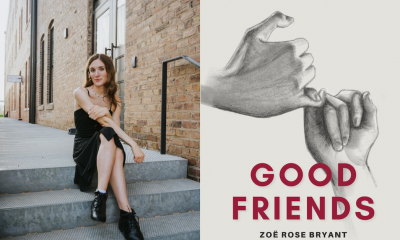
 Books2 days ago
Books2 days agoZoë Rose Bryant on her chart-topping debut novel ‘Good Friends’ and inspiring young trans people online
-

 Los Angeles2 days ago
Los Angeles2 days agoNikko LaMere’s photo exhibit “JOY!” documents the euphoria of Black queer nightlife
-
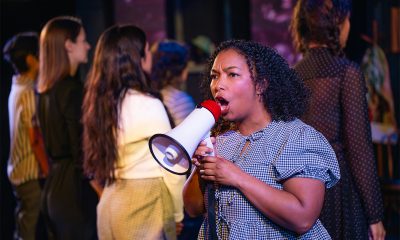
 Reviews4 days ago
Reviews4 days ago“The June Jordan Experience” captures the late queer poet’s tender, revolutionary legacy
-

 Viewpoint2 days ago
Viewpoint2 days agoGay acceptance in US takes a dangerous reversal
-

 Commentary2 days ago
Commentary2 days agoValentine’s Day, Alone
-

 Commentary1 day ago
Commentary1 day agoPost-Valentine’s Day: Are your standards protecting you — or keeping you single?
-

 National2 days ago
National2 days agoLGBTQ+ activists mourn the Rev. Jesse Jackson
-

 Movies17 hours ago
Movies17 hours agoEva Victor winning best screenplay, Erin Doherty winning supporting actress, and more queer highlights of the 2026 Film Independent Spirit Awards


